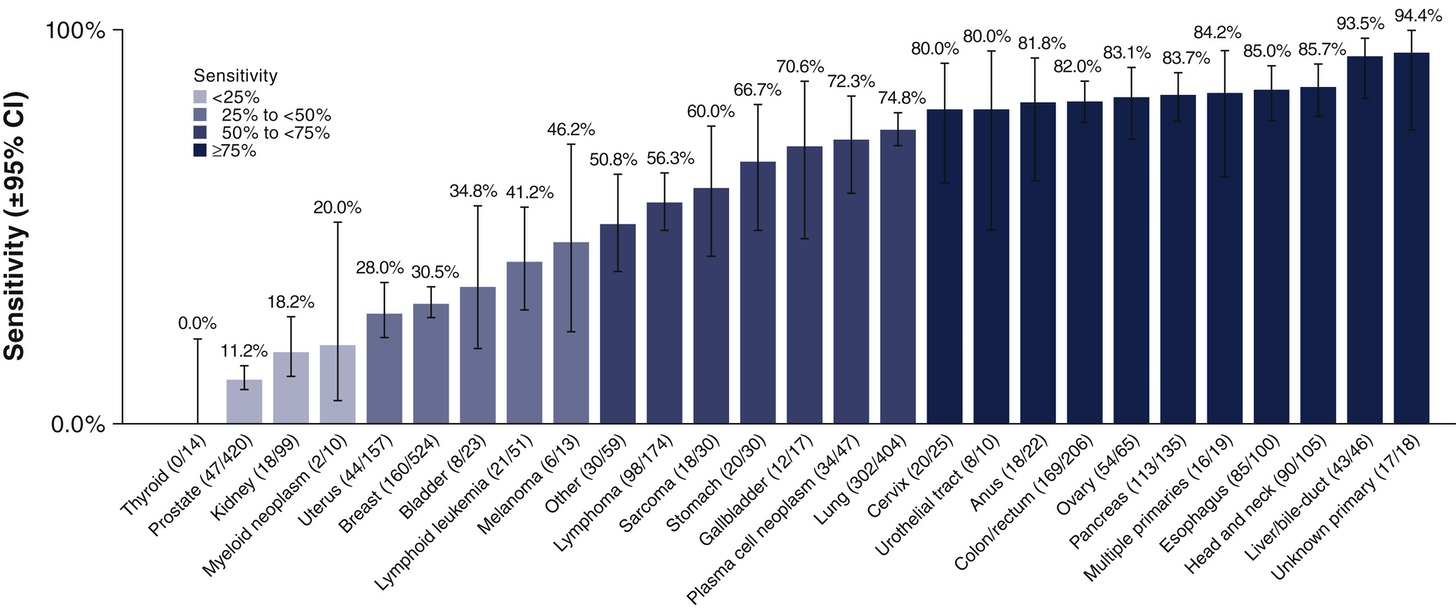
@ShahidNShah


Let’s start with the good news, specificity is high across all cancer types and the mean specificity across all of them is 99.5%. Specificity is a measure for the true negative rate, that is: given that you do not have cancer, how likely is the test to return a negative result? This measure is important for a screening method as a low specificity leads to a higher number of false positives. False positives in cancer screening can lead to unnecessary follow-up scans and biopsies which are costly for the healthcare system and harmful for the patient.
Interpreting the sensitivity of Galleri is more complicated. Sensitivity tells us the test’s ability to find cancer. In aggregate across all cancer types and stages, Galleri has a sensitivity of 51.5%, meaning that roughly half of all cancers are missed.
Continue reading at arsham.substack.com
When you look at the cost of a new hospital, it’s incredibly expensive. The proposed replacement for IU Health Methodist and University Hospitals is forecast to cost $1.6 billion dollars and have 576 …
Connecting innovation decision makers to authoritative information, institutions, people and insights.
Medigy accurately delivers healthcare and technology information, news and insight from around the world.
Medigy surfaces the world's best crowdsourced health tech offerings with social interactions and peer reviews.
© 2025 Netspective Foundation, Inc. All Rights Reserved.
Built on Apr 25, 2025 at 12:44pm